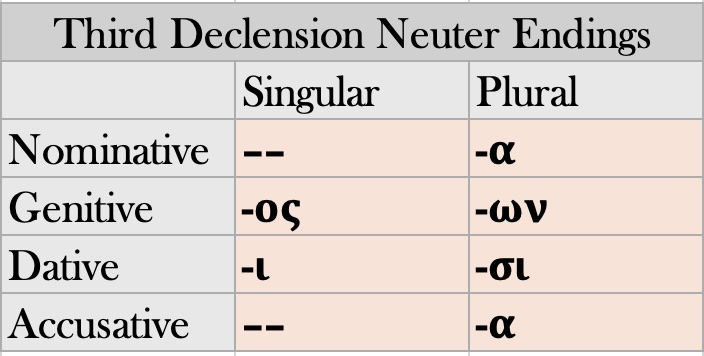9.11 All the nouns we have so far discussed have been either masculine or feminine in gender and have used the same endings to indicate number and case. The third and final grammatical gender, NEUTER, has similar endings, though with a few changes.
Neuter nouns of the THIRD DECLENSION add the following case endings to their stem to indicate number and case. Note that there is no ending (!) added in the NOMINATIVE and ACCUSATIVE SINGULAR.
Sounds That End a Greek Word
9.12 One of the most common stem endings for NEUTER nouns of the THIRD DECLENSION is –ματ. For example:
- σωματ- body
- ὀνοματ- name
Since τ is a dental, the addition of a sigma to the stem (dative plural –σι) results in a sigma: τ + σ = σ.
9.13 Interestingly, it is a general rule that only a limited number of SOUNDS may END A WORD OF GREEK ORIGIN: 1). any vowel sound, or 2). the consonants –ρ/-ν/-ς (ξ,ψ). (Similarly, English words tend to avoid ending in I, U, V, or J).
If a Greek word ended in any other consonant, that consonant is usually dropped (S 133, G 40). (The only exceptions to this rule are ἐκ and οὐκ/οὐχ!). Since the neuter adds no ending to the nominative and accusative singular, stems ending in –ματ drop the final –τ, to avoid having a word end in this letter (S 258, G 119).
As a result, our two nouns decline as follows:




